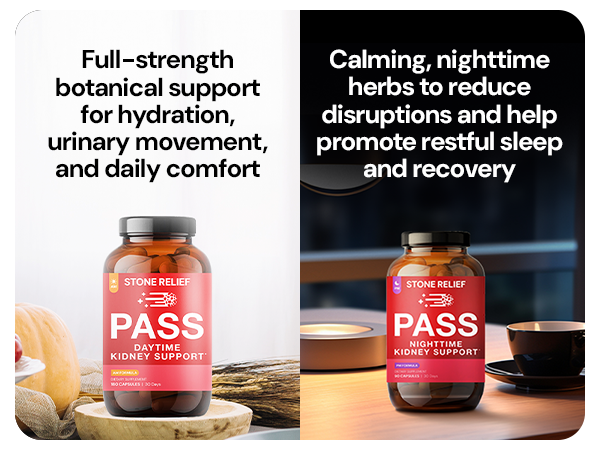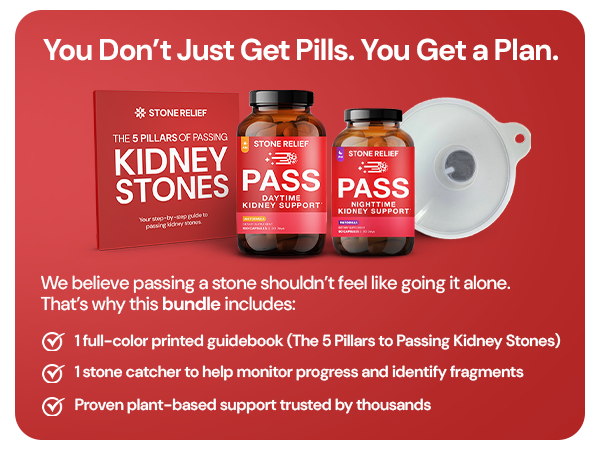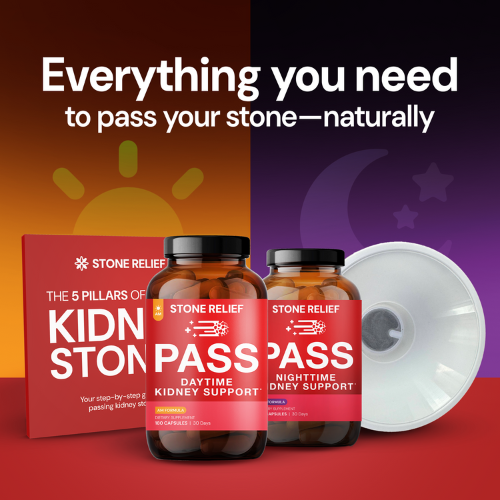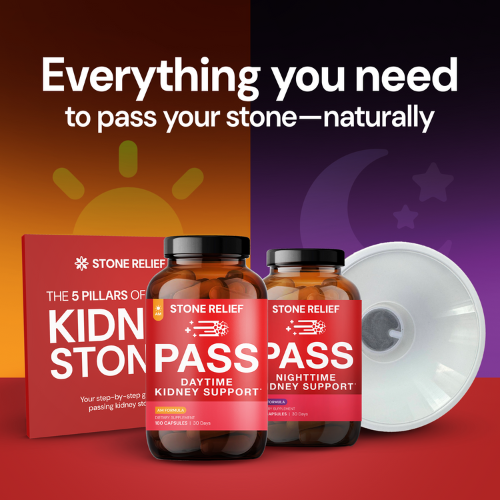How Urine Supersaturation Triggers Kidney Stones
Understanding urine supersaturation is key to preventing calcium oxalate kidney stones. When particle concentrations in your urine exceed what your body can dissolve, stones start to form. In this blog, I’ll explain how supersaturation works, why it raises your risk, and how simple habits like hydrating and adjusting your diet can make a huge difference.
Key Takeaways
-
Urine supersaturation is the foundation behind calcium oxalate kidney stone formation.
-
High concentrations of calcium and oxalate increase your stone risk.
-
Drinking more water and reducing oxalate intake lowers supersaturation.
-
Choosing bioavailable calcium sources helps prevent stone formation.
If you've ever struggled to understand why kidney stones form, you're not alone. But when you strip away all the complexity, it really boils down to one major factor: urine supersaturation.
In simple terms, urine supersaturation happens when the concentration of particles in your urine is greater than what the liquid can dissolve. Imagine mixing powdered drink mix into water. If you use too much powder or not enough water, some mix stays undissolved. This leftover powder is exactly like calcium and oxalate hanging around in your kidneys, ready to clump together into stones.
Without urine supersaturation, calcium oxalate stones can’t form. It's the critical starting point for stone creation.
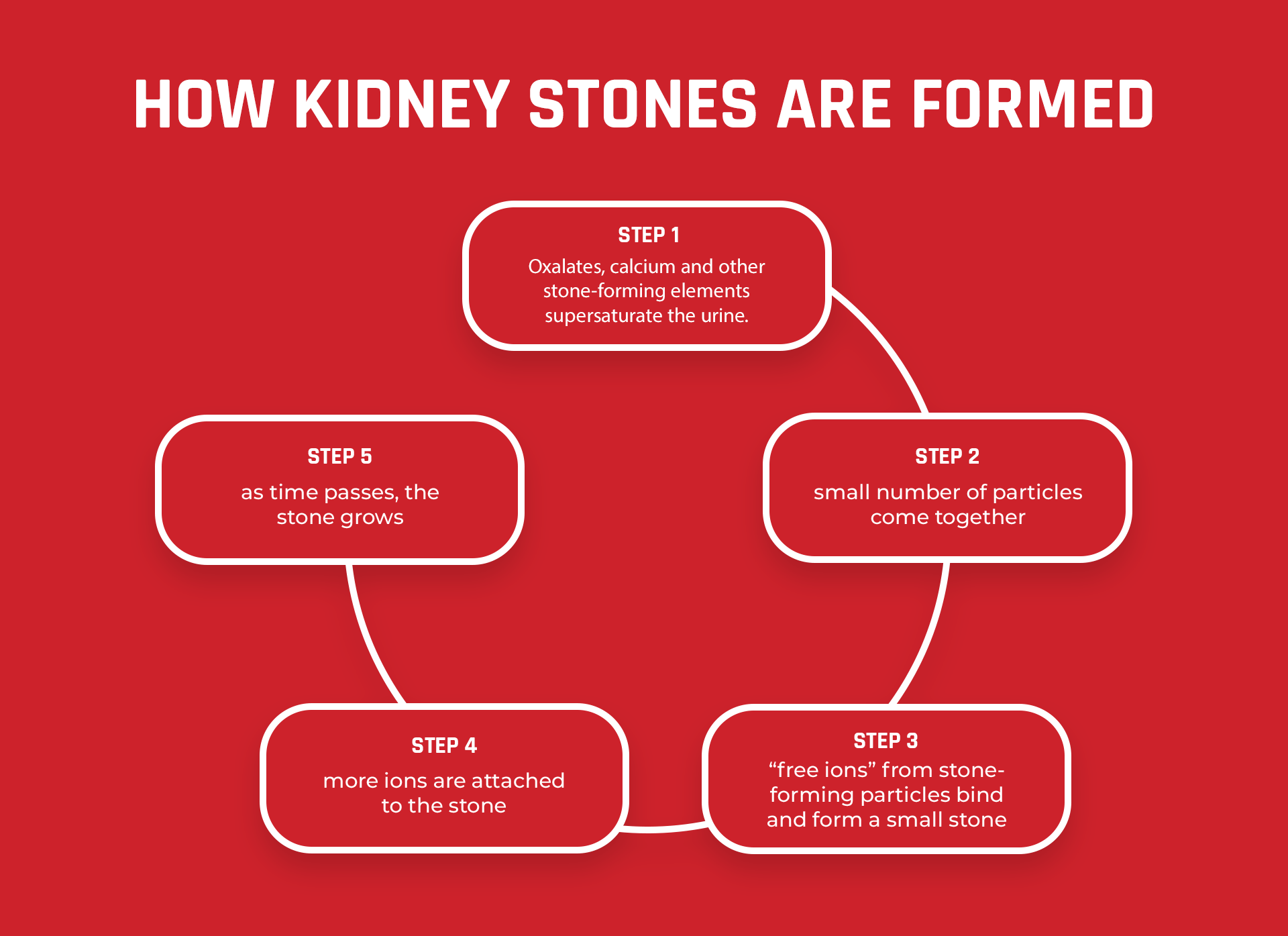
How Supersaturation Leads to Kidney Stones
In our kidneys, urine carries waste products like calcium, oxalate, magnesium, and phosphate. When the urine becomes too "crowded" with these particles, and there's not enough water to dissolve them, supersaturation occurs.
At this point, two things are happening:
-
Excess calcium and oxalate are floating freely.
-
They have enough time to bind together and crystallize.
The longer these free-floating elements hang around, the higher the risk they’ll form a stone.
🛒 Check Price & Purchase Stone Relief Pass AM/PM Bundle on Amazon
Inhibitors That Can Help
Interestingly, certain natural substances in your urine can slow down or even block stone formation. These inhibitors include:
-
Citrate (from citrus fruits)
-
Magnesium
-
Vitamin B6
When present in good amounts, they can help prevent calcium and oxalate from binding—even when supersaturation is happening. However, without enough inhibitors, the risk of crystallization shoots way up.
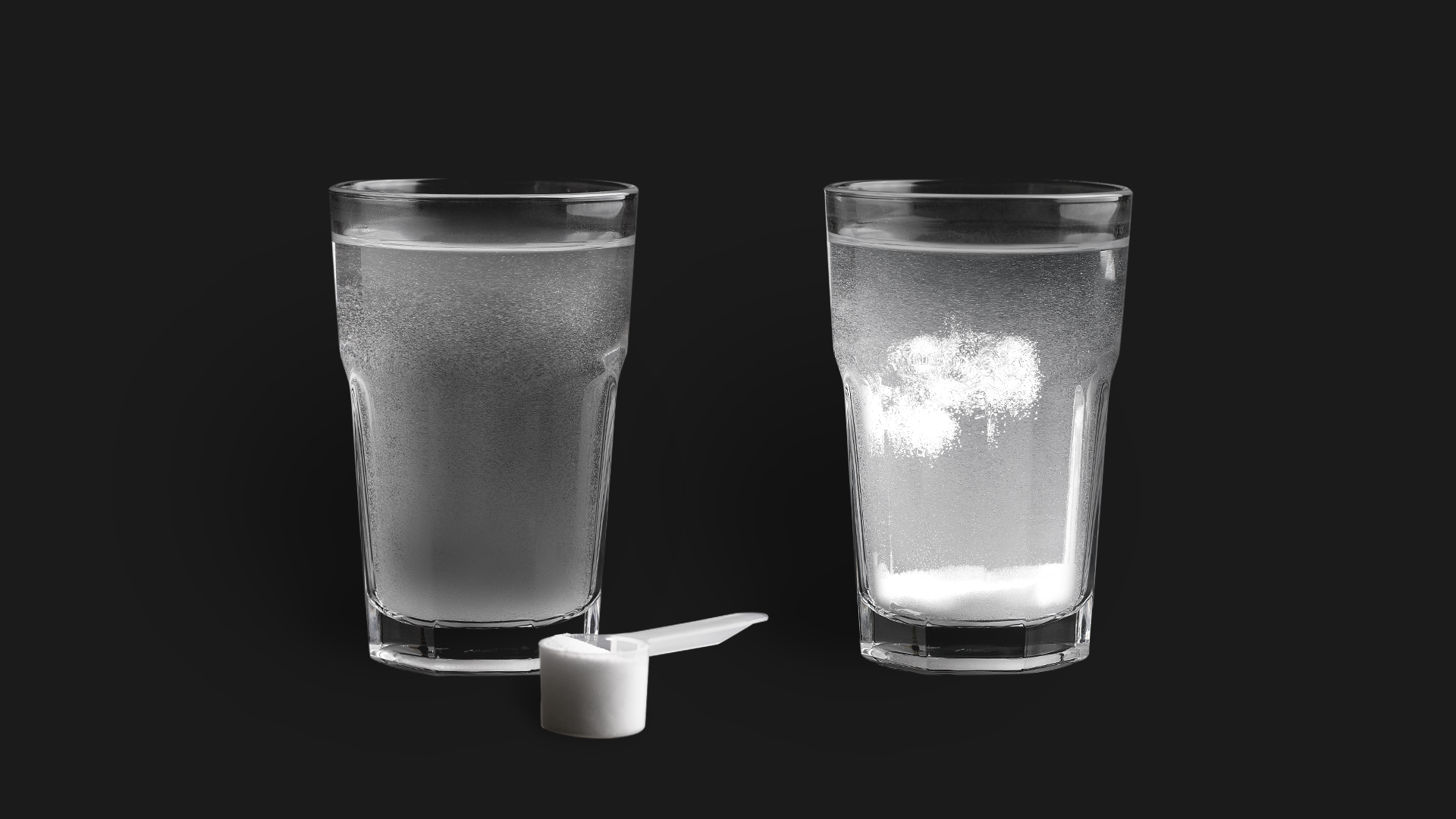
How to Reduce Urine Supersaturation
Now that you understand why urine supersaturation is such a problem, let’s talk about how you can fix it.
1. Lower Oxalate Intake
The less oxalate you eat, the less oxalate there will be floating around in your urine. This dramatically lowers the chance of it finding calcium and forming stones.
For most people forming calcium oxalate stones, cutting back on high-oxalate foods is the single most powerful thing you can do.
If you don't have a rare condition like primary hyperoxaluria type 1—where your liver makes excess oxalate—then the food you eat is the main cause.
2. Drink More Water
Hydration is critical. The more water you drink, the more you dilute the particles in your urine. This keeps your urine from becoming super saturated in the first place.
The American Urological Association recommends at least three liters (around 96 ounces) of water every day to maintain healthy urine flow and prevent supersaturation.
Not only does this keep particle concentration lower, but it also helps flush any stray calcium or oxalate out of your kidneys before they have a chance to bind.
3. Increase Bioavailable Calcium Intake
This might sound strange, but eating more calcium—the right kind of calcium—can actually help.
When you get at least 1000 mg of calcium daily (the RDA), it binds with oxalate in your gut, which means less oxalate makes its way to your kidneys. This reduces your overall stone risk.
However, the type of calcium matters. Synthetic calcium supplements are poorly absorbed and can actually end up in your kidneys where they cause more harm than good.
Stick to bioavailable calcium sources like:
-
Dairy products (milk, cheese, yogurt)
-
Meats
-
Bone broth
These natural forms are easily recognized by your body and used properly, reducing the risk that they’ll end up forming stones.
🛒 Check Price & Purchase Stone Relief Pass AM/PM Bundle on Amazon
Why Synthetic Calcium Can Be Dangerous
One major mistake many people make is relying on synthetic calcium from supplements or fortified foods.
Your body doesn't absorb synthetic calcium very well. Instead of being used for your bones and other processes, it gets dumped into your kidneys. There, it can easily bind with oxalate and form a stone.
If you're serious about preventing kidney stones, ditch the synthetic supplements and get your calcium from whole foods instead.
Final Thoughts on Managing Urine Supersaturation
To sum it all up: urine supersaturation is the foundation for kidney stone formation. If you manage it well, you dramatically reduce your risk.
Here’s what I recommend focusing on:
-
Eat less oxalate
-
Drink more water
-
Increase natural calcium intake
By pulling these three levers, you can significantly lower your chances of forming kidney stones—and maybe avoid surgery altogether.
If you're serious about preventing stones naturally, these small changes can make a huge difference.
🛒 Check Price & Purchase Stone Relief Pass AM/PM Bundle on Amazon


